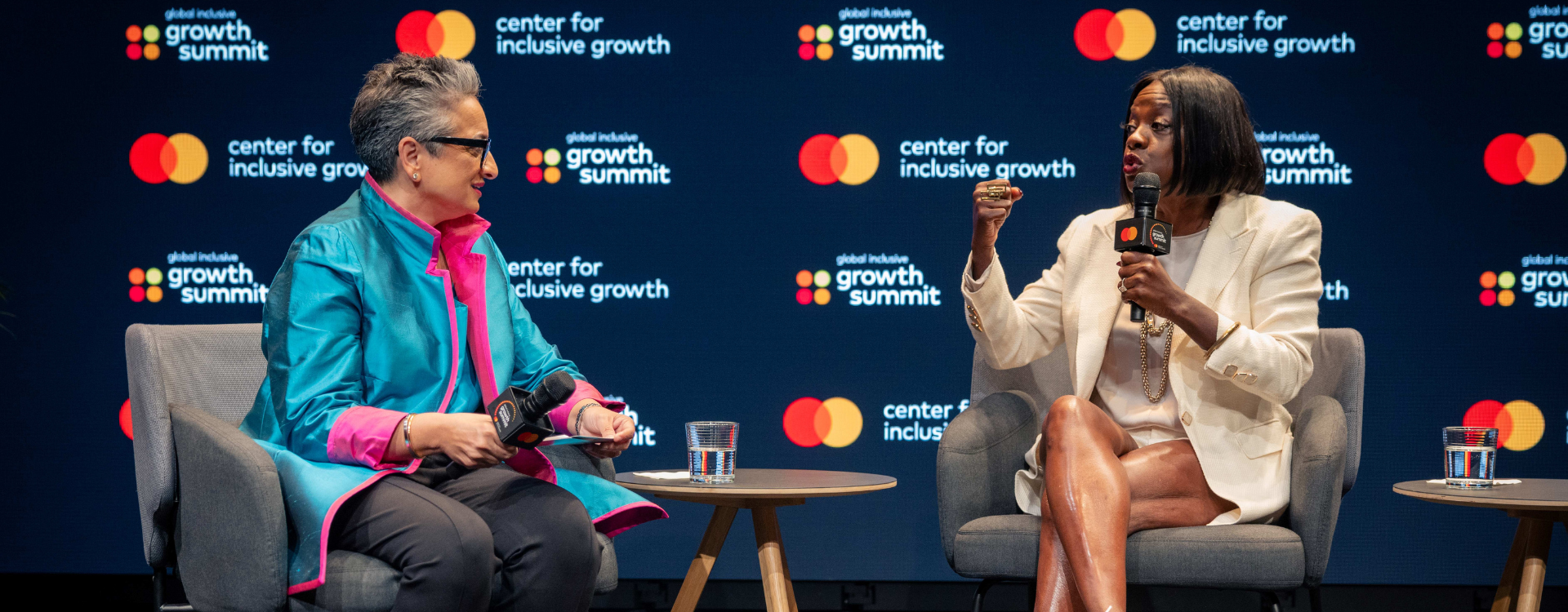From survival to significance: Viola Davis on philanthropy and legacy
June 18, 2025 | By Vicki Hyman
Viola Davis’ childhood in Central Falls, Rhode Island, was steeped in the brutal realities of poverty: condemned housing, rat-infested rooms, toilets that wouldn’t flush, furniture plucked from the side of the road. Growing up with parents who had minimal education — her father with a second-grade level, her mother with an eighth-grade education — she understood early that limited schooling often meant limited opportunities, and that poverty could crush dreams before they could fully take shape.
She fought her way up through acting, finding her passion in theater in high school and later graduating with a theater degree from Rhode Island College and continuing her studies at The Juilliard School. She won a Tony for her debut on Broadway in “Seven Guitars” and earned the first of four Oscar nominations in 2008 for “Doubt,” eventually becoming the rare EGOT — a performer who has earned at least one Emmy, Grammy, Oscar and Tony.
"I got the golden ticket,” she told a rapt audience recently at the Mastercard Center for Inclusive Growth’s Global Inclusive Growth Summit in Washington, D.C., where she spoke about the Davis-Tennon Foundation, which she founded with her producer husband, Julius Tennon, and the evolution of philanthropy into something more inclusive, authentic, and impactful.
“I got to Hollywood, I got to the stages of New York, and I got the golden ticket,” she continued. “And there's disillusionment there. There's a cap, because that's not it in life. Success is not it. It's significance. It's transcendence. It's the understanding that you can't take it with you. You've got to leave something behind for somebody, so that Viola Davis is not the exception, that she needs to be the rule."
Davis’ challenges extended beyond material poverty. As a dark-skinned girl in a predominantly white Catholic community, she was ostracized, her sense of self constantly under siege.
"All of that was dead weight on me,” she said. “Dead weight on my soul. Dead weight on your vision of what you want to become. Dead weight on the energy to become it and not having the ability, at times, to see it."
But within this challenging landscape, seeds of hope were planted. Community programs became lifelines. The Blackstone Valley Community Action Program, where her mother attended meetings with other working-poor mothers, created after-school programs. Though simple — offering nutrition and sewing classes — these programs also provided a crucial escape from the domestic violence that permeated her home.
One pivotal night when Davis was nine, she witnessed her father attempting to break her mother's legs. The trauma of that moment was transformative. She screamed uncontrollably, experiencing what she describes as a mental break.
In that moment of desperation, she prayed to be removed from the situation, closing her eyes and counting to ten, desperately hoping for a miraculous escape. When she opened her eyes and found herself still in the same painful reality, Davis realized that escape would be her own responsibility. Her journey became about defining her own path, moving beyond survival to creating significance.
This philosophy birthed the Davis Tennon Foundation, focused on her hometown of Central Falls. With Tennon, who is also her producing partner in JuVee Productions, she is committed to creating opportunities for children facing similar challenges she once experienced. The foundation's approach is deeply personal and intentional: They work closely with local leaders who understand the community's nuanced needs, focusing on creating sustainable change rather than temporary solutions.
"I see a lot of 6-year-old Violas there, and they're dreamers, and they're waiting to see what and who they can become,” she said. “And with the tide of uncertainty, I know that I can use my golden lasso, per se, to keep them afloat. At least I can do that. That's what I can do."
Video
More from the Global Inclusive Growth Summit
Unlocking opportunity
In this discussion between Bahrain's Minister of Finance and National Economy H.E. Salman Al Khalifa and Shamina Singh, president and founder of the Mastercard Center for Inclusive Growth, an announcement about the launch of Mastercard Strive in the country signals the power of cross-border partnerships.
Closing the cyber divide
As the global economy digitizes, the gap between those with strong cyber defenses and those without is widening — threatening both security and growth. Mastercard CEO Michael Miebach and INTERPOL Secretary General Valdecy Urquiza talk with Alissa "Dr. Jay" Abdullah, Mastercard's deputy security officer, about investing in trust, infrastructure, and global collaboration.
Africa's finance revolution
With the next billion consumers coming online — and a surge of innovation across finance, commerce and technology — Africa is leading a dynamic economic transformation. Mastercard's Jon Huntsman and Equity Group Holdings' James Mwangi discuss how public-private collaboration can unlock new markets, empower small businesses and build digital infrastructure that serves real people.